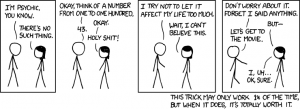A brief, charitable, fair yet accurate assessment of Sen. Kennedy. RTWT.
Many will speak and write of the legacy of Ted Kennedy in the days ahead. For me, as an East Coast “ethnic” grandchild of immigrants, Kennedy’s death symbolizes several cogent moments in Catholic America.
It marks the passing of a generation that thought that being Catholic, Democratic, and proNew Deal were synonymous. We now live in an age where many Catholic Americans are very happy to be described as pro-market and are suspicious of New Deallike solutions — as, of course, they are entitled to be in a way that they are not on, for example, life issues. Senator Kennedy had it exactly the wrong way around.
The author, Fr. Robert A. Sirico, of the Acton Institute, is a prolific writer and activist on behalf economic freedom: “The Mission of the Acton Institute is to promote a free and virtuous society characterized by individual liberty and sustained by religious principles.”
UPDATE: Here is an excellent article by Carl Cannon, about Sen. Kennedy, entitled “Mary Jo Kopechne and Chappaquiddick: America’s Selective Memory”. It is fair and fact-based.
In similar fashion, the editors of National Review do justice to the man, and end on a charitable note I will also end on: “May he encounter the divine mercy that both the greatest and the least of us will require at the end.” Amen.
